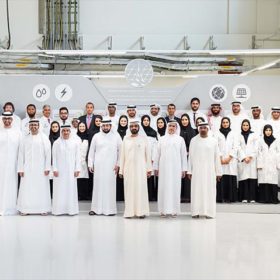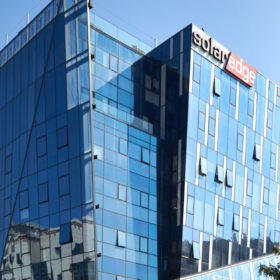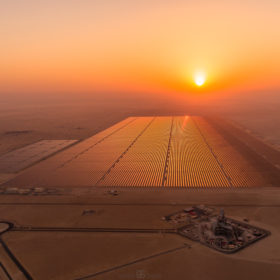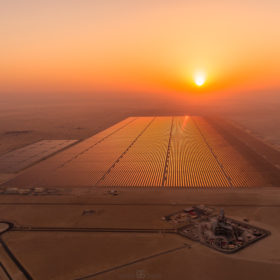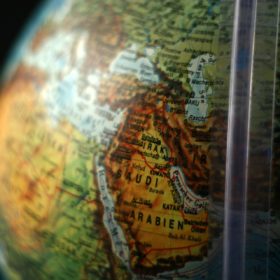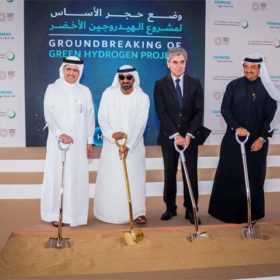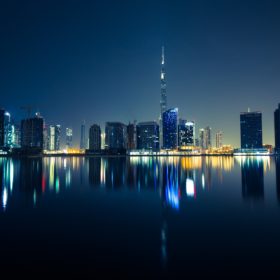DEWA opens new solar R&D center
The Dubai Electricity and Water Authority’s new research facility at the Mohammed bin Rashid Al Maktoum Solar Park will primarily focus on solar power, energy efficiency, and the integration of smart grids.
The year in solar, part IV: More storage and hydrogen advances as solar just kept getting cheaper
Battery innovations started to come thick and fast this quarter as the hunt for alternatives to lithium-ion intensified and the latest slew of solar tenders indicated the relentless pressure on solar power generation costs was showing no sign of abating.
Dubai confirms Saudi’s ACWA won 900 MW solar project tender with $0.016953/kWh bid
The Dubai Electricity and Water Authority said the solar generation capacity is expected to come online in the second quarter of 2021. The tender will constitute the fifth phase of the mammoth 5 GW Mohammed bin Rashid Al Maktoum Solar Park.
Dubai’s 900 MW solar tender sees lowest bid of $0.0169/kWh
The offer was apparently submitted by Saudi energy giant ACWA Power, which refused to confirm the bid when asked by pv magazine. The second lowest bid – $0.0175/kWh – was reportedly submitted by a consortium formed by Emirati developer Masdar, French utility EDF and Chinese PV panel maker Jinko Power.
Does slew of solar mega tenders mean Gulf nations are belatedly accepting the inevitable?
With Kuwait, Qatar and even renewables laggard Saudi Arabia following in the wake of regional clean energy pioneer the UAE, a raft of huge solar tenders is entering the Middle Eastern project pipeline. Obstacles remain to overseas project developers but significant rewards are on offer.
DEWA and Huawei hold strategic summit
The Emirati utility and the Chinese communications giant and inverter maker have discussed how they can work together to roll out solar and storage in Dubai as well as collaborating on cyber security and the use of AI to analyze cyber threats.
Saudi’s ACWA Renewables sells 49% stake to China’s Silk Road Fund
The Chinese state-owned infrastructure investment fund, which already has strong ties to the Saudi power company, will be a major shareholder in a Middle East and African clean energy portfolio that adds up to 1668 MW of generation capacity.
Dubai’s DEWA seeks proposals for phase V of 5 GW Mohammed bin Rashid Al Maktoum Solar Park
The utility has issued a request for qualification for a further 900 MW of PV at the huge solar park, which is set to reach a total capacity of 5 GW.
DEWA begins work on hydrogen facility at Rashid Al Maktoum park
Only three months after issuing the project tender, the Dubai Water and Electricity Authority is building the plant with the support of Expo 2020 Dubai and Siemens.
Smart-grid based hybrid wind-solar project goes online in Dubai
The Smart Grid Station wind-PV facility also incorporates a 500 kWh lithium-ion battery storage system, around 2,000 internet of things-derived sensors and smart meters. The plant was installed by the Dubai Electricity and Water Authority and Korean utility KEPCO.
